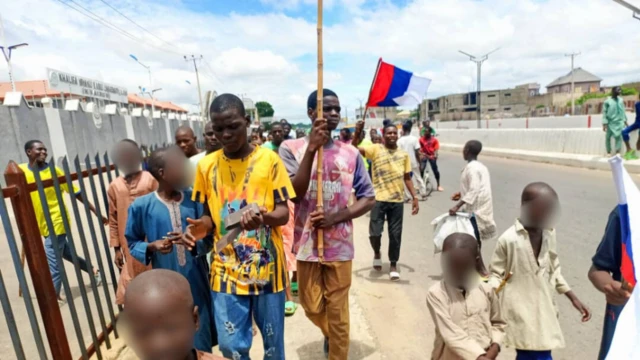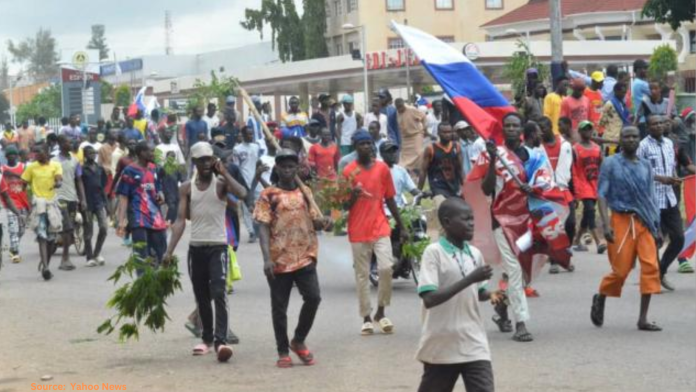- Pro-Russian Protesters Transferred to Abuja for Legal Investigation as 76 individuals were moved for sedition investigation related to protests.
- The Kano State Police Command confirmed the transfer of 76 suspects, including a foreigner, to Abuja for discreet investigation regarding sedition charges.
- The protests are associated with the #EndBadGovernance movement, indicating significant public dissatisfaction with the current government.
- The sedition charges the protesters face could result in severe penalties, raising concerns about the implications for freedom of expression.
- The government’s crackdown on dissent may exacerbate unrest and deepen divisions within the populace.
Newsypeople – The recent transfer of 76 pro-Russian protesters to Abuja by Nigerian authorities has sparked widespread concern, highlighting the delicate interplay between political expression and national security in the country.
This development is part of an ongoing investigation into allegations of sedition, raising critical questions about the boundaries of free speech, political dissent, and the legal constraints surrounding protests in Nigeria.

Also Read: Minister Hannatu Musawa Advocates Music as Unifying Force in Nigeria
Initially detained in Kano, these protesters, who were seen waving Russian flags during demonstrations, were relocated to the capital in what appears to be a significant escalation in the government’s approach to what it perceives as a potential threat to public order.
Their involvement in the broader #EndBadGovernance movement, which reflects growing discontent with the current administration’s handling of socio-economic challenges, adds another layer of complexity to the situation.
The authorities’ decision to pursue sedition charges against these individuals marks a notable shift towards increased scrutiny of public dissent, especially when there are potential connections to foreign influences. The sight of Russian flags during these protests has raised concerns, as it may suggest an allegiance to a foreign power, complicating the narrative around national identity and loyalty.

Relocating the suspects to Abuja is not merely a matter of logistics but carries substantial legal consequences. In Nigeria, sedition charges can lead to severe punishments, including lengthy prison sentences.
This move may also serve as a warning to others who might consider voicing their opposition to the government. However, critics warn that such actions risk infringing on fundamental rights, such as the right to peaceful assembly and freedom of expression.
This situation also highlights the growing tension between the government and civil society. As the authorities continue to crack down on dissent, the possibility of further unrest looms large. The protesters’ actions, set against the backdrop of a global political landscape shaped by Russian influence, complicate domestic narratives and may inadvertently deepen divisions within the country.
Also Read: Kemi Olunloyo Celebrates 60th Birthday with Heartfelt Gratitude and New Online Ministry



